LIV is doing teams wrong says Shiels; The 3 is coming; FAST forward to the past; Dynamic pricing ain't dynamic; LIV v PGA Tour is the new Ryder Cup; Bubbles and Trust; Red Flags and Confected beef
Overthinking the sports business, for money
Coming tomorrow - The 3
A new short form podcast. Every Friday.
UP15 - USE THE CODE TO GET 15% OFF LEADERS WEEK LONDON
Leaders in Sport connects the most influential people and the most powerful ideas in global sport to catalyse discussion, and drive the industry forward. Through a series of global summits in North America, Europe, Asia and the Middle East, invitation-only memberships and long form content, Leaders in Sport provides professional executives, both on and off the field, with access to a community of peers to share best practice and trends that are shaping the future of sport.
Their flagship event, Leaders Week London, returns from 14 to 17 October, with The Summit taking place at Twickenham Stadium hosting the most senior executives from over 40 countries, including over 100 brands.
We'll be there, and you should join us. Visit leadersinsport.com/UP for more information and use UP15 for a 15% discount on your Summit passes.
Rick Shiels is right: LIV and TGL are doing teams wrong
Rick Shiels is the biggest golf YouTube creator in the world.
So we were chuffed to get him on Wedge Issues this week.
We talked about LIV and TGL team brands, and why they are so oddly underwhelming.
There’s nothing to grab hold of, no there there; Just a bunch of overwrought marketing conceits.
Sport by McKinsey again.
Rick Shiels: “The team elements need to be improved. I feel like every team should be attached to a country or a location… unless you've got really strong alignment to a player, sorry, how do you pick a team?
This is the dilemma of the day, which threatens to undermine the business model of several new sports properties, including LIV, TGL, The Hundred and several nascent women’s sport teams that fail the basic test of fandom: Why do I care?
What is the nature of the allegiance?
Location, either national or local, is one obvious starting point.
Shiels: Us being from the UK, England, we really should probably support the Majesticks, because you've got Ian Poulter, Lee Westwood and Sam Horsfield who are English. But then you've got Henrik Stenson who's Swedish. The Rippers have got a hard core fan base because it's four Australian fellas and it's the Australian team. Done. One of my employees, called Ben, is Australian. We went to LIV and it wasn't in doubt, when he went into the merch shop, he just made a beeline straight for the Rippers merch and he bought a bucket hat, because it made so much sense. It’s hard for fans to connect at the moment. Well, I can't pick a team. In theory, us being from the UK, England, we really should probably support the Majesticks, because you've got Ian Poulter, Lee Westwood and Sam Horsfield who are English, but then you've got Henrik Stenson who's Swedish. So it's like, well, they're kind of not quite the English team.
TGL, the other team golf concept doing the rounds, fares little better.
Shiels: I've actually got a phone call this afternoon with TGL and you know, the concept is very interesting. I'd like to know more and see where that lands. But again, going back to teams. I love Tommy Fleetwood. Like, Tommy Fleetwood's really good friend of mine. I absolutely love him. And he has signed with, lemme just double check this fact, is it the LA team? Yeah, Los Angeles Golf Club, that kind of just doesn't make sense. I love Tommy, but I’m not going to wear a Los Angeles Golf Club cap am I? Rory McIlroy is part of Boston Common. What's the link there? How does that work?
LIV v PGA Tour is the new Ryder Cup
It’s funny how things sometimes work.
The same week I had the above conversation with Rick, the story broke of a televised match between four prominent LIV and PGA TOUR players.
This is not what it looks like.
We’ve had these televised head-to-heads before.
They’re boring and overhyped, because they don’t matter.
This one is different.
It is a provocation.
And the relevant bit is that the source of that provocation appears to be Rory McIlroy.
It was McIlroy who contributed to the story written by Eamon Lynch of Golfweek.
It’s McIlroy who is most vocal on putting pressure on Jay Monahan and the Tour to finally do a deal with PIF, and get beyond the current hiatus, which is clogging up the golf economy - note Ben Sharpe’s quote from our recent Wedge Issues pod.
So this new TV stunt isn’t just about confected beef.
It’s about the power lines that have formed within the various player groups, their P/E investor friends and the executive of the PGA Tour.
This from Sports Illustrated lays out the battle lines.
McIlroy and his allies want to get a deal done with Saudi Arabia’s Public Investment Fund, to unify men’s golf under the PGA Tour umbrella.
A group led by Patrick Cantlay, Tiger Woods and Jordan Spieth wants control. They are driven in part (though certainly not exclusively) by anger. They were blindsided by the Tour’s framework agreement with PIF. Wherever the Tour goes from here, they want to control the terms, and they want those terms to be better for them than for the guys who ditched the Tour for LIV.
Each group has its backers and its proxies.
Interesting, no?
See also: 93% of PGA Tour fans don’t recognise the top players
Breaking: People prefer free stuff
Alt heading: Life comes at you FAST
What happened?
Free, ad-supported streaming television continues to be on a growth trajectory, once again rivaling its premium subscription counterparts in June.
For the second month in a row, Tubi, the Roku Channel and Pluto TV collectively accounted for a bigger share of television (4.3%) than the combined total of Max, Paramount+ and Peacock (3.7%), according to Nielsen‘s latest edition of The Gauge, a monthly streaming report.
Tubi took a 2% share of TV usage, an impressive 14.7% growth from May, putting up nearly identical statistics as Disney+. In fact, when Disney+ is added into the premium services’ collective total, it just barely surpasses the combined usage of the FAST channels at 4.7%.
So…it’s like television, with ads rather than premium subs.
It seems to undermine a couple of sports industry assumptions that have morphed in to self serving cliches, most notably that Gen Z don’t like longer stuff.
FAST is the perfect model for people familiar with grazing all day and night on YouTube, with it’s themed channels and ads and personalised recommendations.
Now run sports content through this next paragraph:
“What FASTs are ultimately proving in the wake of Netflix’s success is that the product and viewing experience matters as much, if not more, than the content being watched. FASTs are increasingly winning because they are products first, and walled gardens for content last.”
After years of premium streamers jockeying for subscribers, those leading the FAST channels argue that the future of television probably looks a lot like the past. Only now, it’s on the internet, and it’s on demand.
“Stage one of streaming wars really was painting this picture that ultimately what was the pay TV model, 10 to 15% of the market, was going to dominate,” Adam Lewinson, Chief Content Officer at Tubi, said. “The reality is…SVOD is and will continue to be a very robust piece of the market, but the majority will still be free, ad-supported.”
Sport’s FAST strategy is a topic we’ll be discussing on our live podcast at the StreamAMG event below, held at Amazon HQ in London on Weds 18th September.
Get in touch with Sean@UnofficialPartner.co.uk if you want to come.
Counterpoint: If they would only put test cricket back on free-to-air telly everything would be ok
A regular UP Red Flag is NGB C-Suiters calling for the return of Grandstand.
Meanwhile, in Battersea…
Breaking news: Ticket prices are too high.
Oasis have elevated the concept dynamic pricing to headline news.
It’s one of those ideas that sounds perfectly rational until it comes in to contact with real life.
Over on Sport Inc, Ed Warner wrote an interesting piece on the topic, which has within it a sense of inevitability, that UK/Europe will dutifully follow US sports market trends.
With the next Olympics in Los Angeles, do not be surprised to see dynamic pricing used in the ticket sales process, and for the American public to be largely accepting of it. Expect also that entry to some events will be incredibly expensive compared to the already elevated levels seen in Paris. Such is the way in top-end US sport.
So, higher prices for ‘big ticket events’.
But why do we still get empty seats?
As per my exchange with Ed below, the sports market is often rigged against fans in order to ‘protect’ rights holders from dropping their prices when demand is low.
So the market is far more ‘dynamic’ at the top than it is at the bottom.
Test cricket has always been a good case study for ticket pricing, perhaps because there’s just so much time to play with.
Bubbles and Trust
No, not the name of a new ITV detective series, it’s a serious point being made by OPM co-host Matt Rogan.
The sport industry has lived for too long in its own little bubble, doing deals with itself and staying broadly under the radar. That is completely unsustainable in an era of such public distrust. Instead, sport’s future relies on better quality dialogue with the politicians, the financiers and yes, even the public. Each of these to some extent distrust our process at the moment. None of them have any real tolerance for 6 different sport subscriptions, court cases, labour disputes or poorly executed investments. The choice is ours: change or be changed.
Thanks for reading.
Share this newsletter with your friends and family.
And finally…
Now click the Fucking Like Button, I Mean How Fucking Hard Can It Fucking Be????
It’s the heart shaped thing below, you fucking bell end. It’s the lowest form of human-to-internet engagement and for reasons we don’t quite understand helps us appear more popular with people who don’t yet receive the newsletter, most of whom are of no value in and of themselves, but who collectively add to the story that this newsletter is popular among a group we’ve started to call industry insiders.
We’re grateful for your help in this matter.



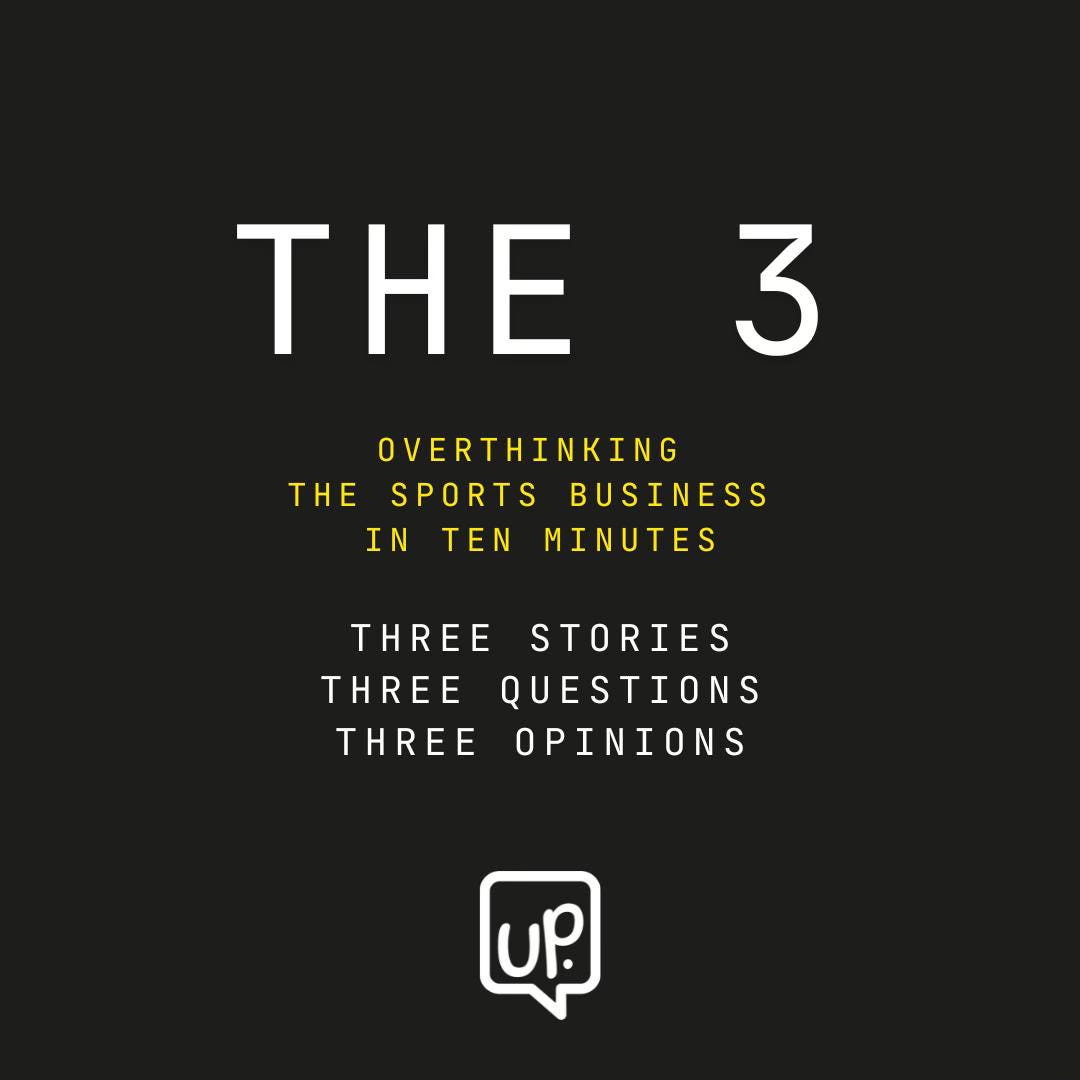

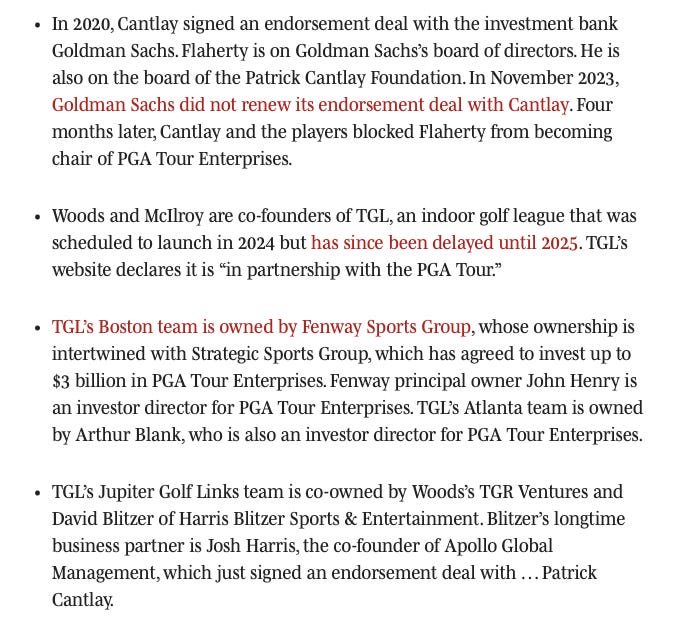
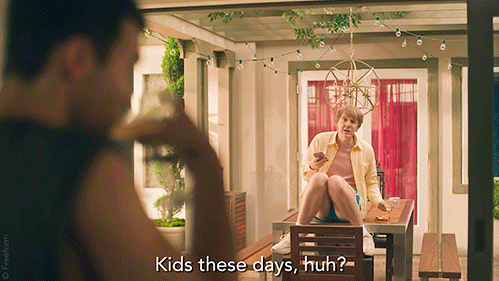
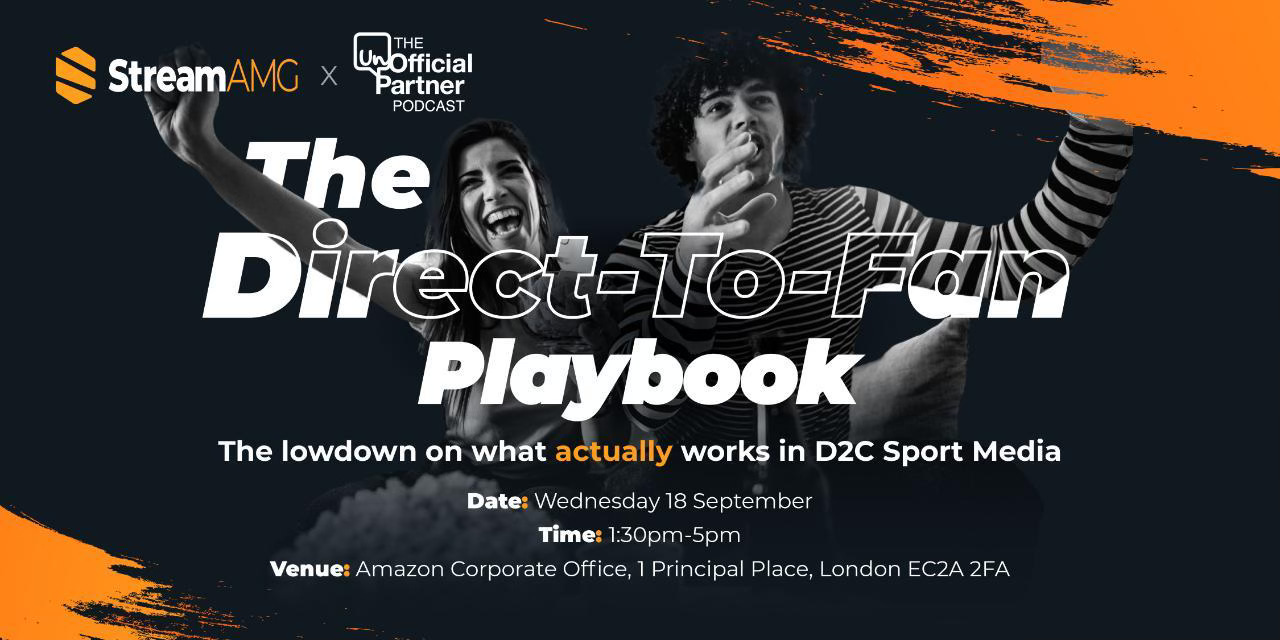



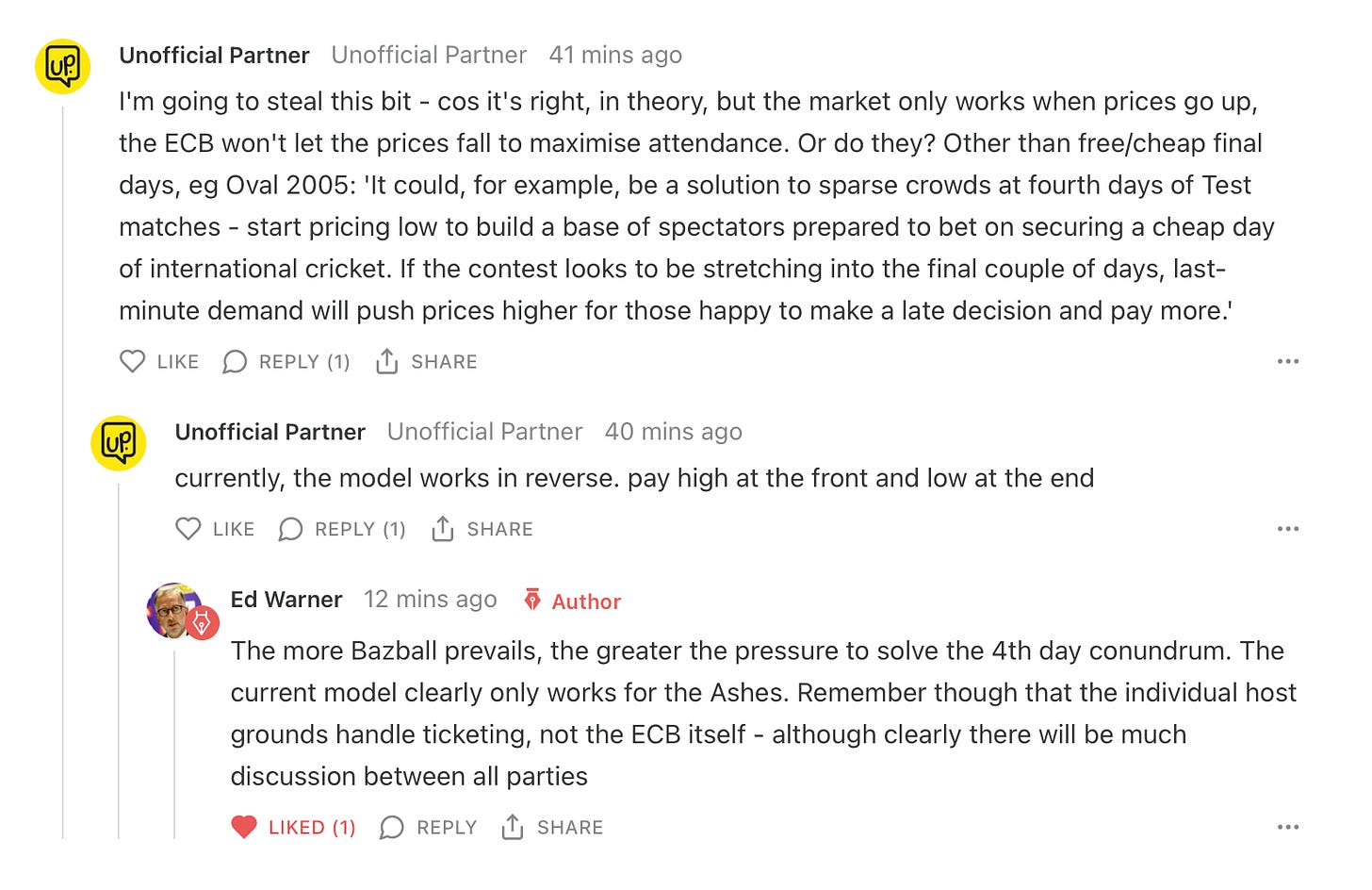
Deeply substantive as always, guys. Job well done this week!